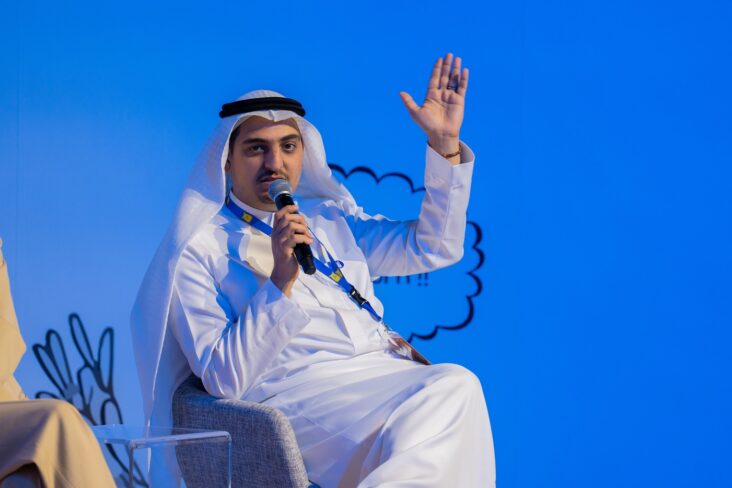Eye-Opening Discussion At Sharjah Animation Conference 2025 Focuses On Animation’s Future In Middle East & Africa

The Sharjah Animation Conference (SAC) 2025 featured a riveting roundtable discussion titled “Animation in MENA & Africa: Opportunities & Challenges,” convening leading voices from the region’s animation industry to discuss the evolving sector. This anticipated session brought together Zümrüt Pakoy, MENA Programming and Presentation Director at Warner Bros Discovery; Abdulaziz Othman, CEO of ZEEZ Animation in Saudi Arabia; Tariq Ali, Founder of Egyptian studio ZANAD; Raymond Malinga, CEO of Creatures Animation Studio in Uganda; and Damilola Solesi, Creative Director and CEO of Smids Animation Studios from Nigeria.
A meeting of industry movers and shakers
Warner Bros Discovery’s Zümrüt Pakoy opened the discussion with a global perspective, commenting on the rising demand for diverse content in international markets. She also highlighted the delicate art of curating content for children, saying “For our animation networks, Cartoonito and Cartoon Network, smart, fun storytelling is non-negotiable,” noting how diversity and inclusion are also highly important in shaping their programming.
With streaming platforms expanding children’s access to content, Pakoy stressed the responsibility of creators, “Every show must reflect the world’s richness while sparking joy.” She pointed to Warner Bros’ global reach as a tool to amplify regional voices, but cautioned against diluting cultural specificity for mass appeal.
Nurturing a sustainable ecosystem
Abdulaziz Othman brought the cyclical challenges of commissioning and funding to the table and the unique competitiveness of the market saying, “Animation has a long shelf life and the competition is global,” referencing evergreen shows that dominate screens years after their debut.
To counter this, Othman advocated for systemic solutions including grants, unions, and institutional partnerships to nurture a sustainable ecosystem. “No single studio can shoulder this alone,” he insisted, reflecting on ZEEZ’s journey from bootstrapped projects to award-winning series like ‘Nayerat’.
Using authentic narratives to unlock the region’s potential
Tariq Ali, the maverick founder of ZANAD, channeled Egypt’s cinematic legacy into his vision for animation. “We’ve had a very strong film industry for decades and I think animation is the next wave,” he asserted, underscoring Egypt’s untapped potential.
Ali championed the creation of original IPs tailored for diverse mediums, from TV to streaming, while celebrating local talent. “We have the talent, we have the know-how; now we need the confidence to own our narratives,” he declared, positioning ZANAD as a bridge between Egypt’s storied past and its animated future.
Championing African stories through animation
Raymond Malinga, the Ugandan filmmaker and CEO of Creatures Animation Studio, spoke with determination about the power of localised storytelling. His 12-person studio has quickly become an example of African excellence, proving that size is no barrier to global impact. His collaboration with Disney+ on ‘Herderboy’, and the opening episode of the anthology ‘Kizazi Moto: Generation Fire’, further cemented his studio’s reputation.
The project, which explores a futuristic African pastoralist’s journey, marked a milestone as one of the first Ugandan-led animations on a global streaming platform. “People need to realise that we are building our industry from scratch here, and when young animators in Uganda see characters who look like them, speak their languages, and navigate worlds they recognise, it transforms what they believe is possible,” he said.
Education as the foundation for industry growth
Damilola Solesi, now a veteran of Nigeria’s creative sector with a decorated career spanning the past 15 years, painted a vivid picture of growth amid adversity in her home country. “Our population is young, ambitious, and wired for innovation,” she said, referencing Nigeria’s 200 million people, most under 35. “There are challenges within our sector, especially within Africa, and it’s not always easy to find support and funding, but there is huge potential for this industry, and we are doing everything we can to open doors for others.”
Solesi also stressed that education and mentorship are the foundation of sustainable growth in Africa’s animation sector. “Institutions that prioritise skills development and accessible training are the engines that will drive this industry forward, but unfortunately this is lacking,” she noted. Through her animation studio, Solesi actively bridges this gap by offering hands-on workshops and guidance for aspiring animators ensuring Nigeria’s youth are active participants in shaping Africa’s animation scene.
For more information and the full conference agenda running until May 4th at Expo Centre Sharjah, visit https://www.sharjahanimation.com/.

